169. When I once upon a time
assembled all the kava glyphs I saw it
was necessary to include the
horizontally oriented Cb6-27 because of its shape.
A kind of confirmation has now been given
from counting a quarter of a year from Cb3-4:
 |
 |
 |
 |
89 |
 |
 |
 |
 |
|
kava |
Ca3-21 |
Ca9-13 |
Cb3-4 |
Cb6-27 |
Cb9-8 |
Cb9-10 |
Cb12-1 |
...
When the
man, Ulu, returned to his wife from
his visit to the temple at Puueo, he
said, 'I have heard the voice of the noble
Mo'o, and he has told me that
tonight, as soon as darkness draws over the
sea and the fires of the volcano goddess,
Pele, light the clouds over the crater
of Mount
Kilauea, the black cloth will cover my
head. And when the breath has gone from my
body and my spirit has departed to the
realms of the dead, you are to bury my head
carefully near our spring of running water.
Plant my heart and entrails near the door of
the house. My feet, legs, and arms, hide in
the same manner. Then lie down upon the
couch where the two of us have reposed so
often, listen carefully throughout the
night, and do not go forth before the sun
has reddened the morning sky. If, in the
silence of the night, you should hear noises
as of falling leaves and flowers, and
afterward as of heavy fruit dropping to the
ground, you will know that my prayer has
been granted: the life of our little boy
will be saved.' And having said that, Ulu
fell on his face and died ...
But we have to return to the niu
glyphs. From the pair before moe te goe
a great jump ahead will be necessary in
order to reach the next niu at Cb12-18,
when the Sun reached the day of St John and
the Full Moon (Hotu) was at Christmas
Even - at the time of Bharani:
 |
 |
 |
|
Cb2-8 (424 = 364 + 60 = 8 * 53) |
Cb2-9 (425 =392 + 33) |
Cb2-10 (426 = 407 + 19) |
|
Niu |
moe te goe |
 |
 |
|
mago |
Cb2-10 |
Mago. Spotted dogfish,
small shark. Vanaga. Mogo,
shark. P Pau.: mago, id.
Mgv. mago, id. Mq.
mano, mako, mono, moko id.
T. maˇ, id. In addition
to this list the word is found
as mago in Samoa, Maori,
Niuē, and in Viti as mego.
It is only in Rapanui and the
Marquesas that we encounter the
variant mogo. Churchill.
 |
 |
326 |
 |
38 |
|
Toki |
Ga2-1 |
Cb2-5 |
|
CANOPUS (*95) |
ALCYONE (*56) |
Toki.
Small basalt axe. Vanaga. Stone
adze. Van Tilburg. Ha'amoe
ra'a toki = 'Put the adze to
sleep' (i.e. hide it in the
temple during the night).
Barthel. Month of the ancient
Rapanui calendar. Fedorova
according to Fischer. To'i.
T. Stone adze (e to'i
purepure = with the
wounderful adze). Henry.
The Araukan Indians in the
coastal area of northern Chile,
have customs similar to those on
the Marquesas and in both areas
toki means adze according
to JosÚ Imbelloni. The Araukans
also called their chief of war
toki and the ceremonial
adze symbolized his function and
was exhibited at the outbreak of
war. In Polynesia Toki
was the name of a chief elevated
by the Gods and his sign was the
blade of a toki. Fraser.
Axe, stone hatchet, stone tool
...; maea toki, hard
slates, black, red, and gray,
used for axes T. P Pau.: toki,
to strike, the edge of tools, an
iron hatchet. Mgv.: toki,
an adze. Mq.: toki, axe,
hatchet. Ta.: toi, axe.
Churchill.
A Maori saying: he iti toki,
e rite ana ki te tangata =
though the adze be small, yet
does it equal a man. (Starzecka) |
|
INVISIBLY CLOSE TO THE SUN NORTH
OF THE EQUATOR: |
|
υ Herculis (242.3), ρ Cor.
Borealis (242.4), ι Cor.
Borealis (242.5), θ Draconis
(242.6), ξ Scorpii (242.7)
SCHEDIR (α Cassiopeiae) |
16h (243.5)
ACRAB = β Scorpii,
JABHAT AL ACRAB
(Forehead of the Scorpion) = ω
Scorpii
(243.3), θ Lupi,
RUTILICUS = β Herculis
(243.5),
MARFIK (Elbow) = κ Herculis
(243.7), φ Herculis (243.8) |
ψ Scorpii (244.6),
LESATH (Sting) =
ν
Scorpii
(244.8) |
|
Nov 18 |
19 |
20 (324) |
|
SEPT 15 |
16 (*179) |
17 (260) |
|
238 |
239 |
240 = 260 - 20 |
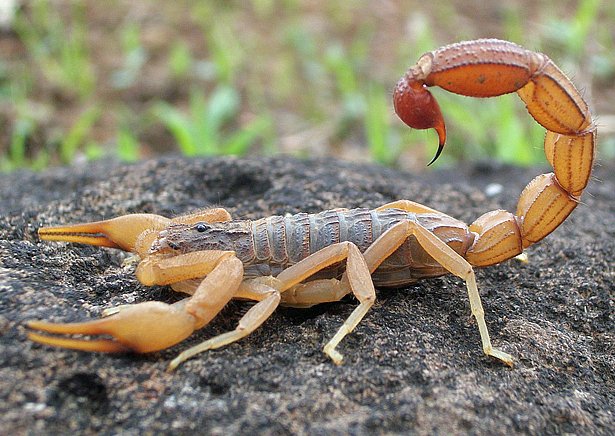 |
|
CLOSE TO THE FULL MOON
ON EASTER ISLAND: |
|
λ
Tauri (59.3),
ν Tauri
(59.9) |
4h (60.9)
JĪSHUĬ (Piled-up Waters) = λ
Persei
(60.7)
COR
CAROLI (α Canum Ven.)
|
υ
Persei (61.2) |
|
May 19 (324 - 185) |
20 (140) |
21 (*61 = *45 + 16) |
|
║May 15 |
16 (136) |
17 (*57) |
|
'April 22 |
23 (113) |
24 (*34) |
|
"April 8 |
9 (99 + 365 = 464) |
10 (*20) |
|
MARCH 16 (75 = 80 - 5) |
17 (*361 = 464 - 80 - 23) |
18 (77 = *362 + 80 - 365) |
|
55 |
56 |
57 = 77 - 20 = 141 - 84 |
|
Egyptian cobra in repose |
 |
Phoenician nūn |
 |
Greek
nu |
Ν (ν) |
|
...
Nun is thought to
have come from a
pictogram of a snake
(the Hebrew word for
snake, nachash
begins with a Nun
and snake in Aramaic is
nun) or eel.
Some have
hypothesized a
hieroglyph of a fish in
water for its origin (in
Arabic,
nūn means
large fish or whale).
The Phoenician letter
was named
nūn 'fish', but
the glyph has been
suggested to descend
from a hypothetical
Proto-Canaanite
nahÜ
'snake', based on the
name in Ethiopic,
ultimately from a
hieroglyph representing
a snake.
... NahÜ
in modern Arabic
literally means 'bad
luck'. The cognate
letter in Ge'ez and
descended Semitic
languages of Ethiopia is
nehas, which also
means 'brass'. |
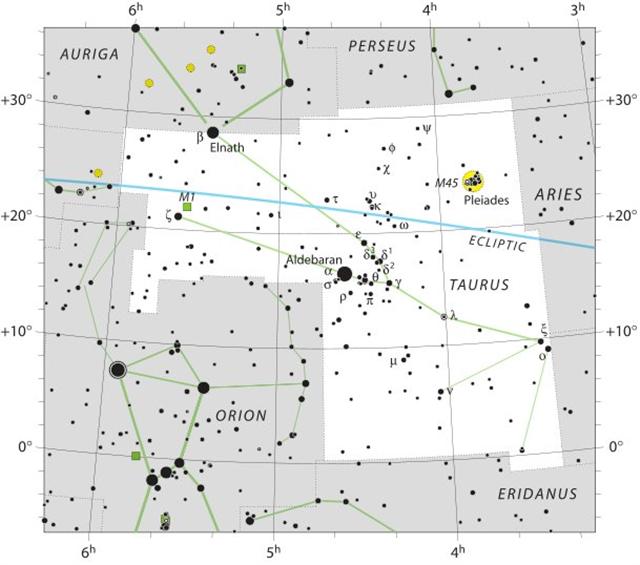 |
|
254 |
 |
 |
 |
 |
 |
 |
|
Cb12-15 |
(290 = 348 - 58) |
(392 + 291) |
(424 + 260) |
(392 + 293) |
Cb12-20 |
|
tagata kua
here te maro i te puoko |
e ariki kua
iri |
te vage Rei |
tu te niu |
te hokohuki ki
te tapamea |
te hokohuki |
|
INVISIBLY CLOSE TO THE SUN NORTH
OF THE EQUATOR: |
|
γ Pyxidis
(133.6) |
ζ
Hydrae (134.1), ρ Cancri
(134.2), ζ Oct. (134.3), ο
Cancri (134.6),
δ Pyxidis
(134.9) |
ACUBENS
= α Cancri,
TALITHA
BOREALIS = ι Ursae Majoris
(135.0), σ Cancri (135.2), ρ
Ursa Majoris (135.6) |
ν Cancri (136.0),
TALITHA AUSTRALIS
= κ Ursae Majoris
(136.1), ω Hydrae (136.8) |
9h (137.0)
σ╣ Ursa Majoris (137.0), κ
Cancri (137.3), τ Cancri
(137.4),
ALSUHAIL
AL WAZN
(of the weight) = λ Velorum
(137.5), σ▓ Ursa Majoris
(137.6),
τ Ursa Majoris (137.7), ξ Cancri
(137.8) |
κ Pyxidis (138.0), ε Pyxidis
(138.5) |
|
Aug 1 |
2 |
3 |
4 (216 = 132 + 84) |
5 |
6 |
|
║July 28 |
29 (*130) |
30 |
31 |
║Aug 1 |
2 (214) |
|
'July 5 |
6 (*107) |
7 |
8 (3 * 63) |
9 (190) |
10 |
|
SOLSTICE |
"June 22 (*93) |
23 |
ST JOHN'S DAY |
25 |
26 (177 = 354 / 2) |
|
MAY 29 |
30 |
31 |
JUNE 1 (84 + 68) |
2 |
3
(154 = 11 * 14) |
|
129 |
130 |
131 = 135 - 4 |
132 = 84 + 48 |
133 |
134 |
 |
|
CLOSE TO THE FULL MOON
ON EASTER ISLAND: |
|
μ
Aquarii (316.0) |
ε
Equulei (317.8) |
no star listed (318) |
21h (319.6)
ARMUS = η Capricorni
(319.0),
DORSUM
= θ Capricorni
(319.3),
TSOO
= 24 Capricorni
(319.7) |
DRAMASA = σ Oct.,
χ
Capricorni (320.0), ν Aquarii
(320.3), γ Equulei (320.6), ο
Pavonis (320.8) |
α Oct.
(321.5), δ Equulei (321.7), φ
Capricorni (321.8) |
|
Jan 31 |
Febr 1 |
2 (398 = 84 + 314) |
3 |
4
(400) |
5 (36) |
|
║Jan 27 |
28 |
(*314 = *254 + 60) |
30 |
31 |
║Febr 1 |
|
'Jan 4 |
5 (*290) |
6 |
7 (372 = 12 * 31) |
8 |
9 |
|
SOLSTICE |
"Dec 22 |
23 |
CHRISTMAS EVE |
25 |
26 (360) |
|
NOV 28 |
29 |
30 (*254) |
DEC 1 |
(336 = 400 - 64) |
3 |
|
312 |
313 |
314 = *254 + 60 |
315 |
316 = 336 - 20 |
317 |
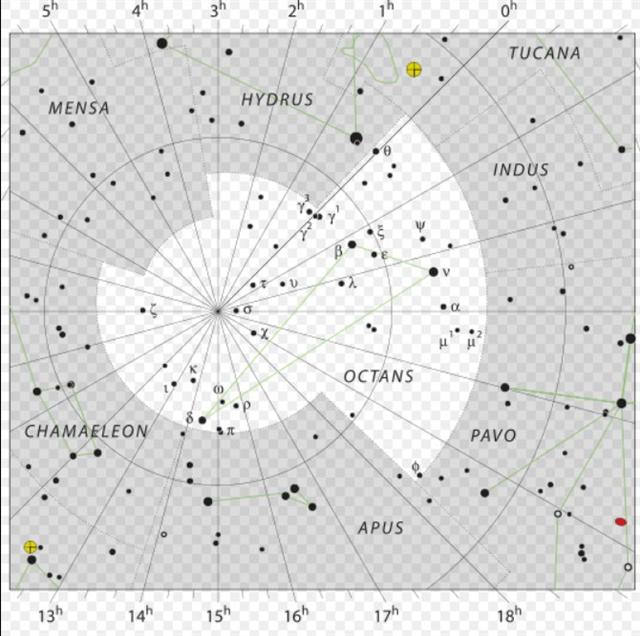 |
At the time of Bharani
the precession had moved the stars ahead
in the Sun year compared to the time of
Hyadum II, viz. with *342 (Situla) - *319
(21h) = *23 right ascension days:
 |
 |
|
Ca12-25 |
Ca12-26 (342) |
|
te niu
tutuu |
oho te rima o te niu |
|
INVISIBLY CLOSE TO THE SUN: |
|
Maru-sha-arkat-Sharru-15
(4th Son behind the King)
SHIR
= ρ Leonis
(158.9) |
p Carinae (159.3) |
|
Aug 26 (*158 = *342 - 184) |
27 (239 = 56 + 183) |
|
'July 30 |
3 (212) |
|
"July 16 |
17 (*118) |
|
JUNE 23 (*94 = *277 - 183) |
ST JOHN'S DAY (175) |
|
154 = 94 + 60 |
155 = 175 - 20 |
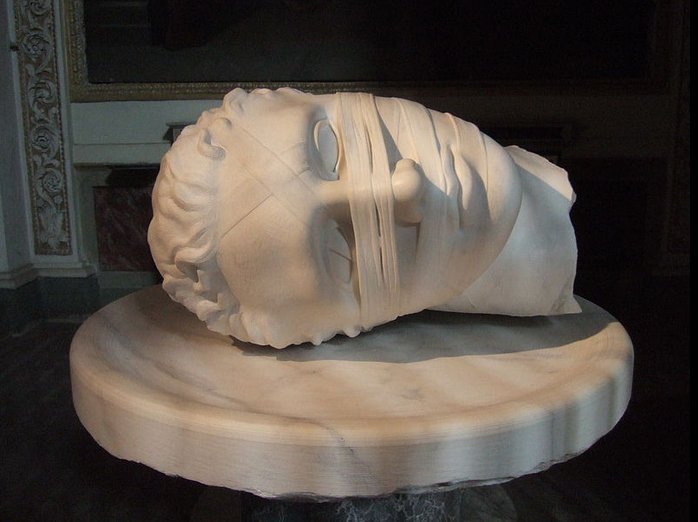 |
|
CLOSE TO THE FULL MOON: |
|
υ Oct. (341.0), α/91 Lac.
(341.1),
HOMAN
= ζ Pegasi,
β Piscis Austrini (341.2), ν
Tucanae (341.5), υ Aquarii
(341.9) |
η Aquarii (342.1), σ Gruis
(342.4),
SITULA
(Water-jar) = κ Aquarii
(342.7) |
|
"Homam
seems to have been first
given to this in the Palermo
Catalogue, from Sa'd al
Humām,
the Lucky Star of the Hero,
in which Ulug Beg included
ξ; other lists have Homan.
But Hyde said that the
original was Al Hammām,
the Whisperer ...
This Arab Sa'd is our
'Good Luck' and a component
word of many titles in the
Desert sky, all of which
seem to have been applied to
stars rising in the morning
twilight at the commencement
of the pleasant season of
spring. Al Sa'dain,
the dual form, was the title
for Jupiter and Venus, the
Two Fortunate Planets; Al
Nahsan, the Unlucky,
referring to Mars and
Saturn." (Allen) |
|
Bissextum
(*341) |
Febr 25 (56) |
|
'Jan 28 (*314 = *341 - 27) |
29 |
|
"Jan 14 (*300 = *341 - 41) |
15 |
|
DEC 23 (*277 = *341 - 64) |
CHRISTMAS EVE (358) |
|
337 = 300 + 37 |
338 = 358 - 20 |
 |
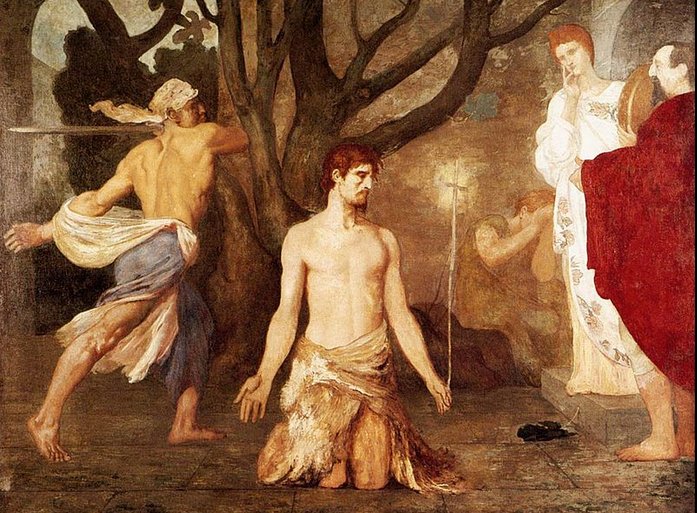
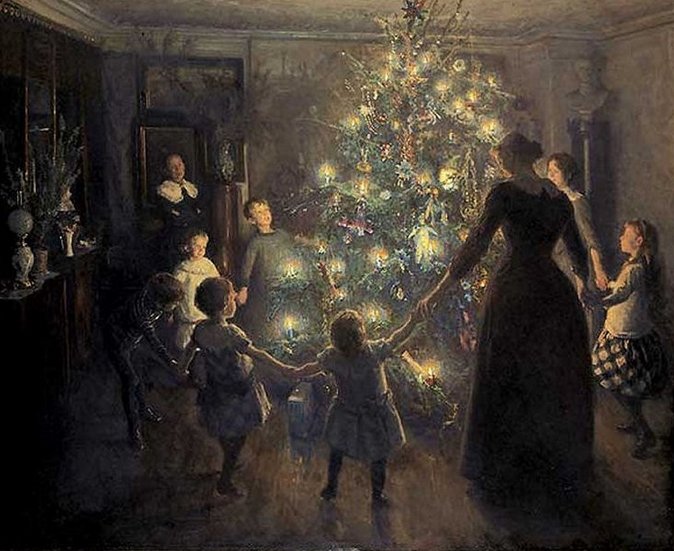
|





















